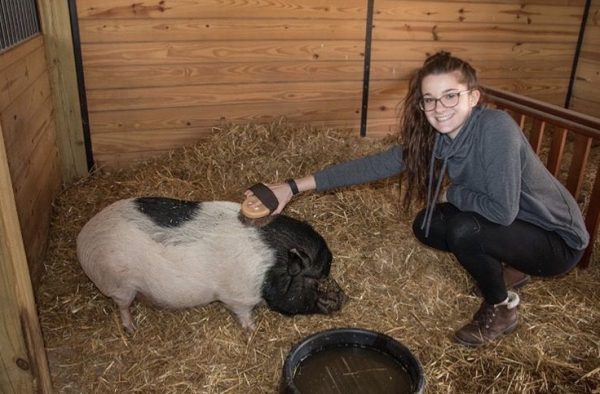Managing Mental Health Throughout the Semester
August 28, 2022
With the semester starting up and classes back in session, students may find themselves at risk for academic-related stress and burnout. In their Spring 2022 undergraduate survey, the American College Health Association found that 51.7 percent of students asked reported experiencing moderate psychological stress, and 24.9 reported experiencing serious psychological distress. 50.9 percent reported academic-based struggles within the past twelve months, and of those who reported those struggles, 89.1 percent say that they caused them moderate to high psychological distress.
In order for Pace students to prevent stress from getting the better of them this semester, Pace’s outreach coordinator for groups and wellness Caitlin Gardner encourages students to focus on progress instead of perfection.
“I think a lot of students operate under sort of an ‘all or nothing’ philosophy, and that can feel really defeating when we don’t meet our goals,” Gardner says. “Doing something is better than nothing.”
Gardner believes that burnout is common among college students
“I think it’s because students are pulled in so many different directions,” she says. “It’s not just academic obligations, but there’s so many other things going on too. I also think students tend to put a lot of pressure on themselves to have an ideal college experience, whatever that is, that they perceive others to be living.”
Gardner mentions the detriments of comparing oneself to others and the importance of learning to set boundaries, say no, and not feel obligated to do everything asked of you. She says that this is some of the best self-care that a person can practice. She also offers the following tips for incorporating self-care into one’s daily routine:
- Engage in deep breathing and mindfulness. Take slow measured breaths while falling asleep, showering, or walking to class, and make an effort to engage your senses and be present while eating, resting, or going about your day.
- Carve out a window of time each day for an activity that relaxes you or brings you joy, whether that means journaling, exercising, or just sitting back and watching an episode or two of your favorite show.
- Listen to your body. Rest if you’re tired, eat if you’re hungry, and take a break if you just cannot push yourself any further.
According to Gardner, a lot of people tend to base their self-worth off of achievement; they put emphasis on the outcomes of what they do rather than the process behind it and return to the above mentioned “perfection vs progress” mentality.
“There’s a lot of value in the process and being present rather than focusing on what’s the outcome and where do I go from there,” Gardener says. “We are quick to dismiss the things that are going well and focus on the things that aren’t going well, and so recognizing what’s going well in my life right now, in what areas have I improved, in what areas am I working really hard, those are all ways that you can combat that achievement-focused self-worth.”
To freshmen feeling intimidated or overwhelmed as they start college, Gardener reminds them that they are not alone in feeling this. Their peers are just as nervous as they are, regardless of how they might express themselves on the surface, and there are plenty of people and resources at Pace to help them navigate this transition.
To transfer students who feel out of place on a new campus, Gardner encourages them to put themselves out there and join clubs and activities that interest them in order to build connections.
Gardner encourages all students to reach out to the Counseling Center, regardless of how small their problems might seem to them.
“Students, I think, often think that they need to be in like a crisis or things need to be really bad for them to reach out to the counseling center, and that’s not really so,” Gardner says. “If you’re just having a hard time adjusting, or you’re feeling overwhelmed or stressed, better to reach out to the counseling center and get support early before it becomes a crisis. I think having a designated space to process, whether it’s burnout or academic stress can be really helpful for most people.”
The Counseling Center is located in the Administration Building on the Pleasantville Campus and is available by appointment from 9-5, Monday through Friday. During the hours of 1-2:30 during the academic year, students can access a counselor by calling 914-773-3710 for a same day emergency. They can also find more information online at http://www.pace.edu/counseling-center/ .
If a student has a more personal or specialized issue that they are dealing with, the Counseling Center can make referrals to other resources within the local community. They will also be planning groups and workshops geared toward promoting students’ wellbeing for the upcoming semester.
“Just as with physical health, mental health is more than just absence of illness,” Gardner says. “I think college can be a really great opportunity for students to learn to manage life stressors, learn communication skills, develop supports, become aware of what their strengths are because this could be an opportunity to develop some lifelong habits for how to manage mental health needs.”













